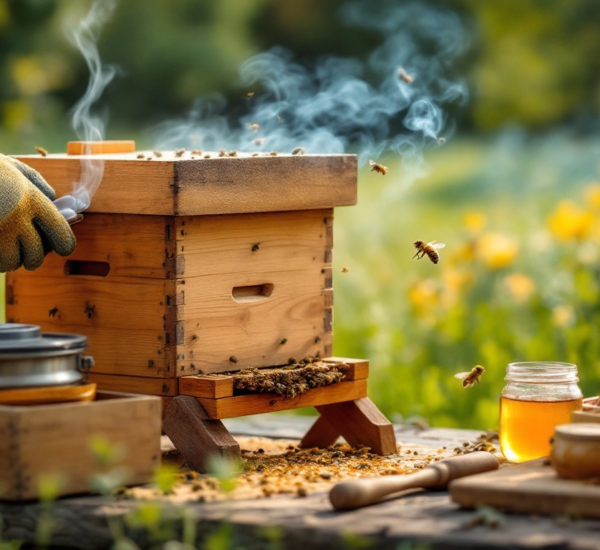Urban beekeeping is buzzing with popularity as more city residents embrace this sustainable practice to support bee populations, enjoy local honey, and connect with nature. However, setting up a backyard or rooftop hive isn’t as simple as bringing in some bees. To ensure your beekeeping effort is legal and harmonious with your neighborhood, you must navigate a complex web of urban beekeeping regulations, permits, and zoning laws. This comprehensive guide will arm you with the knowledge you need to get started, stay compliant, and avoid potential legal pitfalls.
Table of Contents
- What Are Urban Beekeeping Regulations and Why Do They Matter?
- Do You Need a City Beekeeping Permit in Your Area?
- Beekeeping Zoning Laws: Where Can You Legally Keep Bees?
- Urban Beekeeping Ordinances: Local Laws That Impact Beekeepers
- Tips for Staying Compliant With Urban Beekeeping Legal Requirements
- FAQs
- Conclusion
What Are Urban Beekeeping Regulations and Why Do They Matter?
Understanding the Purpose of Beekeeping Laws
Urban beekeeping regulations are designed to balance the benefits of beekeeping with public safety and neighborhood harmony. These laws aim to protect humans and bees alike by preventing issues like aggressive hives, swarming, and the spread of diseases. By adhering to these regulations, urban beekeepers can foster sustainable ecosystems without causing disruptions in their communities.
Key Legal Considerations for Urban Beekeepers
Key legal issues include where you can place hives, how many hives you’re allowed to have, and whether they need to be registered. Some cities require hives to be placed a certain distance from property lines or provide barriers like fences to direct bee flight paths away from neighbors. Ignoring these regulations can result in fines or even having your bees removed.
Examples of Urban Beekeeping Regulations in Major Cities
Cities like New York have more lenient policies, permitting rooftop hives as long as they’re registered with the Department of Health. In contrast, cities like Los Angeles impose stricter limitations, including mandatory hive spacing and inspections. Check [this government guide](#external-link) for specific laws in your area.
Do You Need a City Beekeeping Permit in Your Area?
How to Determine If a Permit Is Required
Whether you need a permit depends on your city’s local rules. Start by checking your municipal government’s website or contacting a local beekeeping association. They often provide clear guidelines on whether permits are needed and how to apply.
Steps for Obtaining a Beekeeping Permit
If your city requires a permit, be prepared for an application process that may involve paperwork, fees, and inspections of your hive setup. Inspectors often look for proper hive placement, compliance with local setback requirements, and flyway barriers to direct bee activity.
Cities That Don’t Require Permits (What to Watch Out For)
In areas where permits aren’t mandated, beekeepers still need to follow general nuisance and safety laws. Failure to manage your hive responsibly can lead to neighbor complaints or legal action, even in permissive cities.
Beekeeping Zoning Laws: Where Can You Legally Keep Bees?
Residential vs. Commercial Beekeeping
Urban beekeeping zoning laws typically distinguish between residential and commercial setups. In many cases, residential areas allow a limited number of personal hives, while commercial operations face stricter zoning and operational requirements.
Common Zoning Issues and Solutions
Setbacks are a common concern in urban beekeeping zoning. Many cities require hives to be several feet away from property borders. Installing tall fences or hedges can help reduce neighbor issues and satisfy municipal guidelines. Additionally, ensuring bees have access to water on your property can minimize complaints.
Case Studies of Zoning Exceptions
Some urban beekeepers have successfully petitioned for zoning variances, particularly in areas with vague or outdated rules. Engaging with local government representatives and presenting a clear management plan can often yield positive results.
Urban Beekeeping Ordinances: Local Laws That Impact Beekeepers
Overview of Common Ordinances
Local ordinances typically govern the number of hives per property, hive heights, and requiring water sources for bees. These rules are in place to reduce nuisance complaints and ensure safe, sustainable beekeeping in urban areas.
Specific Health and Safety Ordinances
Many jurisdictions mandate regular health inspections of hives to prevent disease outbreaks, such as American Foulbrood. Beekeepers must also comply with pest control measures to maintain the overall health of the bee population.
Advocating for Better Ordinances in Your Area
Joining local advocacy groups can help you push for more beekeeper-friendly laws. Public awareness campaigns and community discussions often influence policymakers to adopt less restrictive regulations.
Tips for Staying Compliant With Urban Beekeeping Legal Requirements
Best Practices for Urban Beekeepers
To avoid legal complications, keep your hives clean, manage swarms effectively, and document your compliance efforts. Recordkeeping can be invaluable if you need to address complaints or during inspections by city officials.
Navigating Changing Regulations
Urban beekeeping laws often evolve. Stay informed by attending city council meetings, subscribing to local government alerts, or joining a beekeeping club. Associations frequently update members on regulatory changes.
What to Do If You’re Cited for a Violation
If you’re cited, immediately correct the issue, whether it’s relocating a hive or providing water for your bees. In serious cases, consult a lawyer who specializes in land use or agricultural law.
Frequently Asked Questions
What are the penalties for non-compliance with urban beekeeping laws?
Penalties range from fines to mandatory hive removal. Some cities may issue warnings initially, but repeated violations can result in legal action.
How can I find out if urban beekeeping is legal where I live?
Consult your local municipal website or contact a nearby beekeeping association for clear information about local laws and zoning regulations.
Do I need to notify my neighbors if I want to start keeping bees?
While not always legally required, notifying your neighbors is a courteous way to prevent conflict. Many issues can be avoided by addressing their concerns upfront.
How many hives can I keep on my property?
This depends on local rules. Some cities allow one or two hives per urban lot, while others impose stricter limits based on lot size.
Can I keep bees in an apartment or on a rooftop?
In most cases, rooftop beekeeping is allowed with the proper barriers and neighbor consent. Beekeeping in shared spaces, like apartment complexes, is less common and subject to stricter regulations.
Conclusion
Urban beekeeping offers numerous benefits for individuals and the environment, but compliance with city regulations is essential. By understanding permits, zoning laws, and ordinances, you can enjoy this rewarding hobby without running afoul of the law. Take the time to explore resources, join local associations, and engage with your community to advocate for bee-friendly policies. Ready to take the plunge into beekeeping? Start by researching your local laws and ensuring your hive fits seamlessly into your urban ecosystem.




